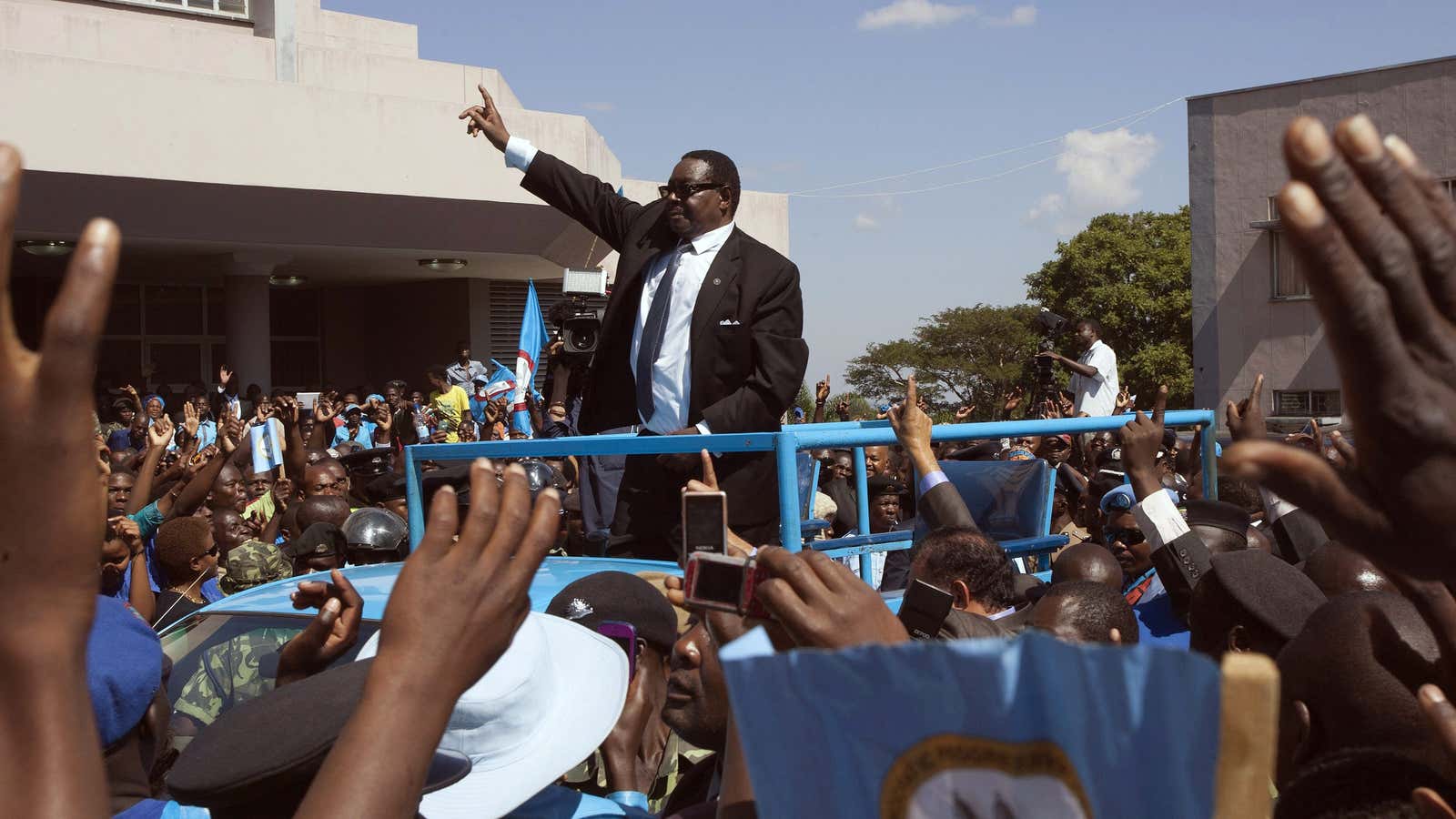As Malawi prepares for national elections to be held on May 21, the country has been hit by a fake news campaign which has quickly spread on social media.
While the spread of misinformation is no longer surprising during elections in Africa or elsewhere, Malawi is notable because the southern Africa country has an internet penetration rate of just 14% of its 18 million population. That’s lower than the sub Saharan Africa average of around 22%, based on ITU data.
And yet, despite low internet access people who get online and pick up fake information (often urban dwellers) end up discussing these emerging Issues in their neighborhoods, social gatherings and in many public places and can at times even spread to people living in rural areas.
With election campaigns for president, members of parliament and local government councillors now at a fever pitch, Malawians are eager to hear election news and it’s driving a proliferation of fake news mainly through Facebook and WhatsApp.
In recent weeks, these two social media platforms have been awash with reports that the Nigerian prophet TB Joshua, who is head of the Synagogue Church of all Nations (Scoan) and Emmanuel TV, had predicted that state vice president Saulos Chilima, who leads United Transformation Movement, would win the forthcoming elections.The church had to come out and dismiss such claims.
“The man of God has not made a prophecy regarding specific persons on Malawi election and therefore any messages circulating on social media do not come from Scoan or its official channels.” The church said in a statement
In mid-March this year, a fake ballot paper which had Malawi Congress Party presidential candidate Lazarus Chakwera on top, with Democratic Progressive Party candidate and president Peter Mutharika at the bottom went viral on these social media platforms again.
The story this time was that president Mutharika was unhappy with the electoral body over his positioning on the ballot paper, as he felt being last on the paper would minimize his chances of reclaiming the top job in the country.
The electoral body has been swift in trying to quash other false stories spreading. “The Malawi Electoral Commission has noted with serious concern that there is an increase of fake news and job recruitment vacancies being shared on social media, purportedly coming from the commission. The commission strongly condemns this unbecoming behavior by a few irresponsible individuals.”
The electoral commission has since warned it will take legal action against such individuals. But it won’t be so straightforward as seen when prominent activist John Kapito had to distance himself from a Facebook page bearing his name and publishing posts in support of opposition Malawi Congress Party presidential candidate Lazarus Chakwera.
Fake news is not new to Africa, and Malawi is not the only country facing fake news problems during the election period. Back in February Nigeria was under massive fake news attack and in South Africa Google deployed some of its vast resources to train political parties, journalists and editors how to spot and fight fake news.
There are seven candidates competing for the highest public office in the country but the main candidates are three which are: the incumbent president Peter Mutharika of the Democratic Progressive Party, the main leader of opposition Lazarus Chakwera of the Malawi Congress Party and the current vice president Saulos Chilima who’s running against his boss and formed his United Transformation Movement.
The former president Joyce Banda pulled out from the elections and endorsed Lazarus Chakwera. The vote will take place amid extreme poverty that the country still faces and the never ending corruption issues in the country. Dissatisfaction regarding corruption is high with Mutharika himself refuting allegations he pocketed a $4 million government food contract.
Sign up to the Quartz Africa Weekly Brief here for news and analysis on African business, tech and innovation in your inbox
